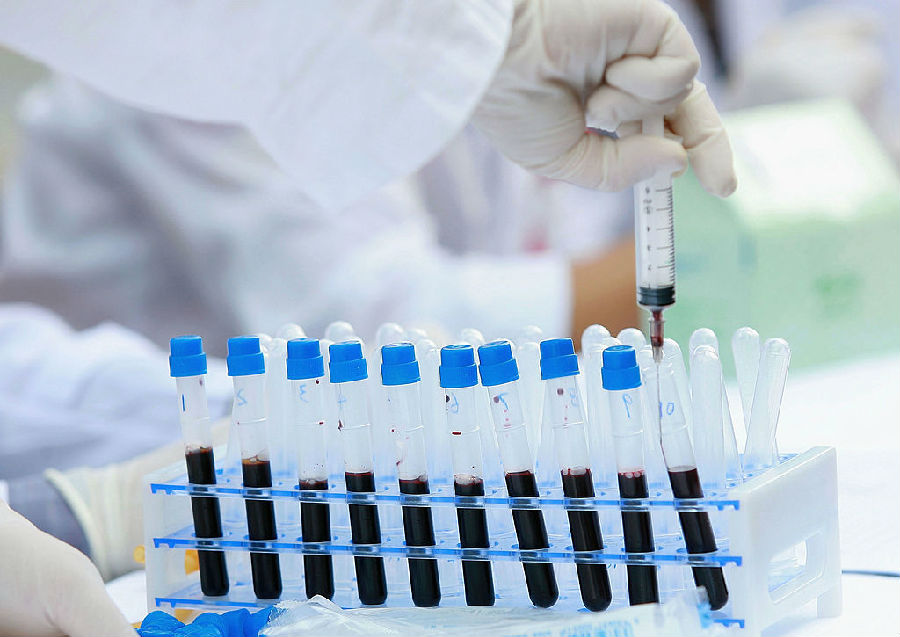(单词翻译:单击)
Biotech group CSL has bought a blood collection company to fix its supply problems in China, as part of its ambition to be the country’s biggest plasma collector.
生物科技集团CSL收购了一家血液采集公司来解决它在中国的供应问题,这是该集团成为中国最大的血浆采集商的雄心的一部分。
The Australian company gathers plasma from US donors, and exports a protein found within it to China, where a spate of liver diseases has left local companies unable to keep up with demand.
这家澳大利亚企业从美国献血者采集血浆,并向中国出口血浆所含的一种蛋白质。由于肝病病例突然增多,中国本土企业无法满足国内市场对这种蛋白质的需求。
But restrictions on the kinds of plasma proteins that can be exported to China have prompted CSL, one of Australia’s largest companies with a $47.5bn market capitalisation, to buy a Chinese company, giving it the capacity to collect plasma in China.
但中国限制可以进口的血浆蛋白质种类,这促使CSL收购了一家中国公司,以得到在中国采集血浆的能力。CSL市值475亿美元,是澳大利亚最大企业之一。
At stake is the $1.9bn in sales seen annually for the human serum albumin, which is derived from plasma and used to treat conditions such as hepatitis. The product was a big part of why CSL was able to increase its China sales by 35 per cent last fiscal year.
此举涉及人血清白蛋白(HSA)每年19亿美元的销售额。这种蛋白质从血浆中提取而来,用于治疗肝炎等疾病。该产品是CSL能够在上个财年增加中国销售额35%的一大原因。
The group’s total revenues for fiscal 2017 were $6.9bn.
该集团2017年财年总收入为69亿美元。
The company’s core business is extracting another protein, immunoglobulin, from US donors and selling it globally to treat a range of diseases.
该公司的核心业务是从美国献血者提取另外一种蛋白质——免疫球蛋白(Ig),并在全球出售这种可以治疗一系列疾病的蛋白质。
China banned immunoglobulin imports in the 1980s, leaving CSL without access to the world’s fastest-growing market for this product until August, when it acquired an 80 per cent stake in Chinese plasma company Wuhan Ruide for $352m.
上世纪80年代,中国禁止进口免疫球蛋白,使得CSL无法进入该产品的世界增长最快市场——直到今年8月该公司以3.52亿美元收购了中国血浆公司武汉中原瑞德生物制品公司(Wuhan Zhongyuan Ruide Biologics) 80%的股权。
“The reason for the acquisition goes back to the regulations. It’s just you can’t access the market unless you have a company here,” said Paul Perreault, CSL’s chief executive, in Shanghai.
“收购的原因还是监管。你就是无法进入该市场,除非你在这里有公司,”CSL首席执行官保罗?佩罗(Paul Perreault)在上海表示。
Ruide is a small player in China’s plasma market, with just a handful of collection centres in the backwater province of Hubei. CSL wants to import techniques from its US centres to boost efficiency, and connect Ruide to the 1,000 Chinese hospitals to which CSL already sells.
瑞德是中国血浆市场上的一个小型参与者,只在较为落后的湖北省拥有几个采集中心。CSL希望从其美国中心引进技术以提高效率,并把瑞德介绍给已经是CSL客户的1000家中国医院。
“I want to be the largest plasma collector in China and it’s going to take about eight to 10 years to get there,” said Mr Perrault.
“我想成为中国最大的血浆采集公司,这将需要8至10年才能实现,”佩罗表示。

He cited continued social stigma about plasma donation stemming from deadly scandals in the 1990s — when thousands of HIV-infected people in China gave blood — and traditional beliefs that see blood as a vehicle for the mystical life force known as chi, which CSL wants to counter with education campaigns.
他提到了社会对于捐赠血浆持续存在的成见——源自上世纪90年代的致命丑闻,当时中国数以千计的艾滋病毒感染者卖血——以及把血液视为“气”的神秘生命力量的载体的传统观念——CSL希望开展教育活动来破除这种观念。
“Only the poor will sell their chi, sell their blood. There is a lot of education to be done,” said Mr Perrault.
佩罗表示,“只有穷人会卖气,卖血。需要做大量教育工作。”
CSL’s image as a foreign company could make that easier. “They’ve got an opportunity to come in and show how clean and efficient collection can be, which has great potential to change consumer perceptions of the blood collection business,” said George Baeder, a drug industry consultant.
CSL身为外国企业的形象可能使这项任务变得容易一些。“他们已经获得了进入市场、并展示采集血浆可以做到多么清洁和高效率的机会,有很大可能去改变消费者对于血液采集业务的认知,”医药行业咨询顾问乔治?贝德(George Baeder)表示。


